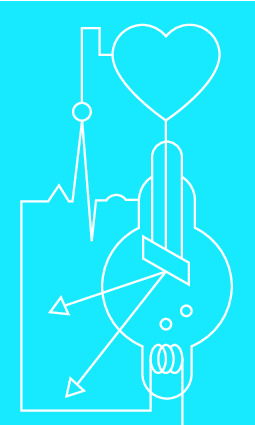|
|
|
| Module code: BMT3305.PRG |
|
|
4V+2U (6 hours per week) |
|
7 |
| Semester: 3 |
| Mandatory course: yes |
Language of instruction:
German |
Assessment:
Written exam
[updated 08.01.2020]
|
BMT2305.PRG (P211-0023) Biomedical Engineering, Bachelor, ASPO 01.10.2018
, semester 3, mandatory course
BMT3305.PRG (P213-0233) Biomedical Engineering, Bachelor, SO 01.10.2025
, semester 3, mandatory course
EE1302 (P211-0023) Energy system technology / Renewable energies, Bachelor, ASPO 01.10.2022
, semester 3, mandatory course
E2305 (P211-0023) Electrical Engineering and Information Technology, Bachelor, ASPO 01.10.2018
, semester 3, mandatory course, technical
|
90 class hours (= 67.5 clock hours) over a 15-week period.
The total student study time is 210 hours (equivalent to 7 ECTS credits).
There are therefore 142.5 hours available for class preparation and follow-up work and exam preparation.
|
Recommended prerequisites (modules):
None.
|
Recommended as prerequisite for:
|
Module coordinator:
Prof. Dr. Reinhard Brocks |
Lecturer: Prof. Dr. Reinhard Brocks
[updated 29.11.2024]
|
Learning outcomes:
After successfully completing this course, students will be able to implement the concepts of procedural programming in the programming language C/C++. They will use design techniques to find solutions. They will use their knowledge about programming techniques to create well-structured and documented programs. They will use basic software development tools.
[updated 08.01.2020]
|
Module content:
- Procedural programming: fundamental data types, operators, control structures, functions, pointers and arrays, validity ranges and lifetime of objects, structures/unions, function pointers, command line arguments, references, namespaces - Design techniques: program flowchart - Programming techniques: modularization, separation of interface and implementation, callback functions, data structures and algorithms - Development tools: preprocessor, compiler, linker, shell, shell scripts, makefile, debugger
[updated 08.01.2020]
|
Teaching methods/Media:
Lecture notes
[updated 08.01.2020]
|
Recommended or required reading:
Dausmann, Manfred: C als erste Programmiersprache, Springer Vieweg, (akt. Aufl.) Erlenkötter, Helmut: C Progammieren von Anfang an, rororo Erlenkötter, Helmut: C++: Objektorientiertes Programmieren von Anfang an, rororo, (akt. Aufl.) Kernighan, Brian W.; Ritchie, Dennis M.: Programmieren in C, Hanser, 1990, 2. Ausg. ANSI C Stroustrup, Bjarne: Die C++ Programmiersprache, Addison-Wesley, (akt. Aufl.) Wolf, Jürgen: C von A bis Z, Galileo Press, Bonn, 2009, 2. Aufl., ISBN 978-3-8362-1429-2
[updated 08.01.2020]
|


